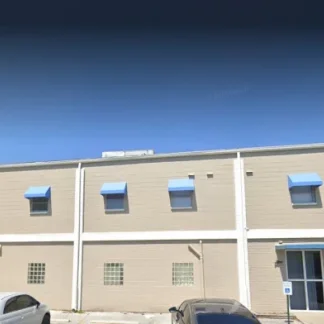Families First of Florida
Families First of Florida is a private rehab located in Tampa, Florida. Families...
Juvenile Addiction Receiving Facility, located in Tampa, Florida, is a short term acute care treatment center for youth ages 12- 17 years of age. Their programming is for those who are dealing with a significant substance abuse disorder, or who are living with active challenges related to dual diagnosis.
Juvenile Addiction Receiving Facility provides crisis inpatient stabilization services.
The inpatient programming at Juvenile Addiction Receiving Facility is for those who need immediate support due to the significance of their addiction. This program offers a comprehensive assessment to start, 24 hour RN supervision, detoxification services, and stabilization services. The length of stay for this to take place is approximately three – five days, however, if needed, a longer stay can be accommodated. Once stabilization is achieved, referrals are made to move into the next phase of treatment.
Detoxification provides stabilization for adult young men and young women with substance use disorder. When detox is completed in an inpatient setting, there will be monitoring of vital signs and withdrawal symptoms to ensure the process is as comfortable as possible. When detox is completed on an outpatient basis, monitoring cannot be continuous. The length of detox and the method used varies depending on what is best for each person.
Dual Diagnosis, often referred to as having co-occurring disorders, is when two or more mental health concerns present themselves simultaneously. It is very common for those who struggle with addiction to also have an underlying mental health concern such as anxiety, depression, or a diagnosable psychiatric disorder. Without proper treatment of the mental health issue at hand, getting and staying sober can be difficult. By treating both the substance use disorder and the mental health needs concurrently, a greater chance for long term sobriety is achieved. Juvenile Addiction Receiving Facility may refer out for mental health needs if the case requires a higher level of care and support.
Contact us for more information: (813) 931-4669

Connect with Juvenile Addiction Receiving Facility (JARF) by calling their admissions team directly.
(813) 931-4669 Website Get DirectionsResearch clearly demonstrates that recovery is far more successful and sustainable when loved ones like family members participate in rehab and substance abuse treatment. Genetic factors may be at play when it comes to drug and alcohol addiction, as well as mental health issues. Family dynamics often play a critical role in addiction triggers, and if properly educated, family members can be a strong source of support when it comes to rehabilitation.
Group therapy is any therapeutic work that happens in a group (not one-on-one). There are a number of different group therapy modalities, including support groups, experiential therapy, psycho-education, and more. Group therapy involves treatment as well as processing interaction between group members.
In individual therapy, a patient meets one-on-one with a trained psychologist or counselor. Therapy is a pivotal part of effective substance abuse treatment, as it often covers root causes of addiction, including challenges faced by the patient in their social, family, and work/school life.
Life skills trainings involve all the skills a person must have in order to function successfully in the world. These include time management, career guidance, money management, and effective communication. Truly successful addiction recovery is based on the ability to not only live substance-free, but to thrive. Life skills teaches the practical necessities of functioning in society, which sets clients up for success in life, and therefore sobriety.
Group therapy is any therapeutic work that happens in a group (not one-on-one). There are a number of different group therapy modalities, including support groups, experiential therapy, psycho-education, and more. Group therapy involves treatment as well as processing interaction between group members.
In individual therapy, a patient meets one-on-one with a trained psychologist or counselor. Therapy is a pivotal part of effective substance abuse treatment, as it often covers root causes of addiction, including challenges faced by the patient in their social, family, and work/school life.
Life skills trainings involve all the skills a person must have in order to function successfully in the world. These include time management, career guidance, money management, and effective communication. Truly successful addiction recovery is based on the ability to not only live substance-free, but to thrive. Life skills teaches the practical necessities of functioning in society, which sets clients up for success in life, and therefore sobriety.
In individual therapy, a patient meets one-on-one with a trained psychologist or counselor. Therapy is a pivotal part of effective substance abuse treatment, as it often covers root causes of addiction, including challenges faced by the patient in their social, family, and work/school life.
Life skills trainings involve all the skills a person must have in order to function successfully in the world. These include time management, career guidance, money management, and effective communication. Truly successful addiction recovery is based on the ability to not only live substance-free, but to thrive. Life skills teaches the practical necessities of functioning in society, which sets clients up for success in life, and therefore sobriety.
Life skills trainings involve all the skills a person must have in order to function successfully in the world. These include time management, career guidance, money management, and effective communication. Truly successful addiction recovery is based on the ability to not only live substance-free, but to thrive. Life skills teaches the practical necessities of functioning in society, which sets clients up for success in life, and therefore sobriety.
Families First of Florida is a private rehab located in Tampa, Florida. Families...
Unique Lady's of Character is a non-profit rehab located in Tampa, Florida. Uniq...
Derek Jeter Center at Phoenix House is a private rehab located in Tampa, Florida...
Healthcare Connection of Tampa is a private organization that offers inpatient r...